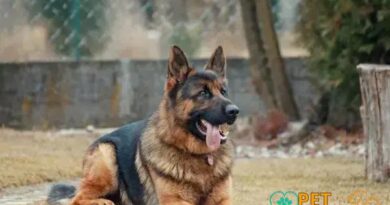What is juvenile dogs
What is Juvenile Dogs?
Juvenile dogs refer to canines that are in the developmental stage between puppyhood and adulthood, typically ranging from six months to two years of age. During this period, dogs undergo significant physical and behavioral changes, making it a crucial time for their growth and socialization. Understanding what juvenile dogs are is essential for pet owners, as it helps in providing the right training and care tailored to their developmental needs.
Physical Development of Juvenile Dogs
As juvenile dogs grow, they experience rapid physical changes. Their bodies are transitioning from the small, delicate frames of puppies to the more robust structures of adult dogs. This phase is marked by increased muscle mass, changes in coat texture, and the development of adult teeth. Owners should be aware that juvenile dogs may have bursts of energy and require more exercise to support their growing bodies, which can help prevent obesity and promote healthy development.
Behavioral Changes in Juvenile Dogs
Behaviorally, juvenile dogs can exhibit a range of changes. They may become more independent and assertive, testing boundaries set by their owners. This is a natural part of their development as they learn about their environment and their place within it. Owners might notice increased curiosity and a desire to explore, which can sometimes lead to mischievous behavior. Understanding these behavioral shifts is vital for effective training and management during this stage.
Socialization Needs of Juvenile Dogs
Socialization is a critical aspect of raising a juvenile dog. This stage is the perfect time to expose them to various people, environments, and other animals. Proper socialization helps prevent behavioral issues later in life, such as fearfulness or aggression. Engaging in puppy classes or organized playdates can provide valuable experiences that enhance a juvenile dog’s confidence and adaptability in different situations.
Training Techniques for Juvenile Dogs
Training juvenile dogs requires patience and consistency. Positive reinforcement methods, such as treats and praise, are highly effective during this developmental stage. It’s essential to focus on basic commands and social skills, as these will form the foundation for more advanced training in the future. Owners should also be prepared for occasional setbacks, as juvenile dogs may test their limits and require ongoing guidance to reinforce good behavior.
Nutrition for Juvenile Dogs
Proper nutrition is vital for juvenile dogs to support their growth and energy levels. Owners should provide a balanced diet formulated for puppies or young dogs, which contains the necessary nutrients for healthy development. It’s important to monitor their weight and adjust food portions accordingly, as overfeeding can lead to obesity and related health issues. Consulting with a veterinarian can help ensure that a juvenile dog receives the right dietary plan for their specific needs.
Health Considerations for Juvenile Dogs
During the juvenile stage, dogs are also susceptible to certain health issues. Regular veterinary check-ups are essential to monitor their growth and catch any potential problems early. Vaccinations, parasite prevention, and dental care should be prioritized to ensure a healthy transition into adulthood. Owners should be vigilant for signs of illness or discomfort, as early intervention can make a significant difference in a juvenile dog’s health outcomes.
Common Challenges with Juvenile Dogs
Owners may face several challenges while raising juvenile dogs. These can include increased energy levels leading to hyperactivity, stubbornness during training, and potential behavioral issues stemming from inadequate socialization. Understanding these challenges and being proactive in addressing them can help create a positive experience for both the dog and the owner. Seeking guidance from professional trainers or behaviorists can also provide valuable support during this time.
Preparing for the Transition to Adulthood
As juvenile dogs approach adulthood, owners should prepare for the changes that come with this transition. This includes adjusting training techniques, exercise routines, and dietary needs to suit their developing maturity. It’s also a time to reinforce good habits and ensure that the dog is well-adjusted and well-behaved. By being proactive and attentive, owners can help their juvenile dogs smoothly transition into confident and well-mannered adult companions.


